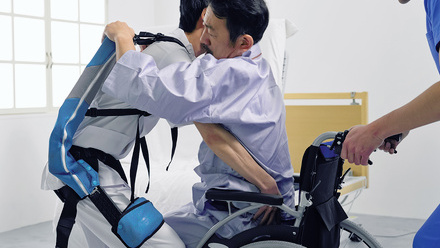Wellbeing that works
Around 60% of EU workers have reported suffering one or more musculoskeletal disorders (MSDs) and as well as causing pain for employees, they’ve also been linked to a 15% drop in productivity.
Organisations often try to reduce the risk of these problems by changing workspaces, tools and tasks but it doesn’t always have the desired effect. A new study has reviewed the success of different participatory ergonomics interventions designed to decrease MSD risk.
It found that the most effecting projects were those which featured one or more of five key contexts: workers’ needs as a core starting point; a positive implementation climate; clear distribution of roles and responsibilities; allocation of sufficient resources; and managerial commitment to and involvement in occupational safety and health.
The study added: “Interventions that were organised and delivered in this way generated relevance, meaning, confidence, ownership and trust for the workers in an interrelated and multi-directional manner.”
The findings could help design more effective programmes to reduce MSD risk with greater worker participation. Find out more






